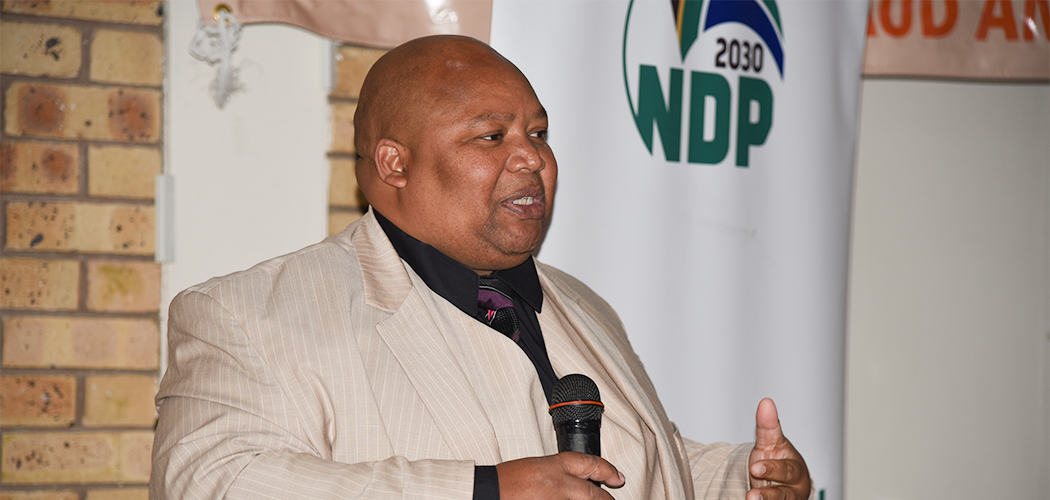 PROGRAMME DIRECTOR
PROGRAMME DIRECTOR
MEMBERS OF THE EXECUTIVE COUNCIL
MEMBERS OF THE PROVINCIAL LEGISLATURE
MAYORS, SPEAKERS AND COUNCILLORS
MEMBERS OF THE ACADEMIC FRATERNITY
REPRESENTATIVES OF FAITH-BASED ORGANISATIONS
REPRESENTATIVES OF ORGANISED LABOUR
REPRESENTATIVES OF ORGANISED LOCAL GOVERNMENT
MUNICIPAL MANAGERS, CHIEF FINANCIAL OFFICERS AND GOVERNMENT OFFICIALS
LADIES AND GENTLEMEN
It gives me pleasure indeed to say a few words at this National Anti-Corruption Strategy Workshop arranged by the National Department of Monitoring and Evaluation.
On behalf of Premier Sylvia Lucas and the Northern Cape Provincial Government, I welcome this initiative by the Department of Performance Monitoring and Evaluation and I trust that this consultative session will yield positive outcomes.
You may recall, Ladies and Gentlemen that under the previous regime openness and transparency were indeed a foreign phenomenon and the Department of Performance Monitoring and Evaluation’s endeavours must be appreciatively acknowledged in promoting clean and accountable governance both in the private and public sectors.
Corruption and its siblings, namely malpractice and maladministration, may be defined as the subversion of the public interest and the common good by private interests. More specifically, it is the abuse of power for illegitimate or illegal gain or profit, or the failure to maintain proper controls.
Within the context of our apartheid legacy, Programme Director, we all have the collective responsibility to restore a genuine public service ethos, work ethic and the maintenance of impeccable discipline in the ranks of public sector employees. In turn, the public has a responsibility to take the necessary action wherever and whenever corruption manifests itself no matter who the perpetrator is.
Public tolerance of corruption, Ladies and Gentlemen, may temporarily remove a regulatory obstacle or even unlawfully enrich a person, but only at the cost of all the moral values and constitutional principles which we have fought so hard to attain. Therefore, the conduct and demeanour of the general public should not serve to encourage or condone corrupt practices.
In this regard, I consider civil society to be an equal partner with public sector institutions to maintain and uphold the moral fibre of society.
It is also my considered view, Ladies and Gentlemen that the interface between the public service and the private sector is where much corruption occurs. In this regard the private sector must form part of the solution and not be part of the problem in our efforts to combat corruption.
Therefore, Programme Director, we need to foster and maintain the basic goodness of most public servants in the knowledge and belief that the public good is for more important than private gain.
Within the government- be it municipal, provincial and national- it is common knowledge which groups are at risk and may be tempted or enticed to commit unlawful acts.
You can rest assured, that not only will they be provided with continuous support, but there are comprehensive reporting and accounting mechanisms that act as a deterrent. Above all, we need to collectively ensure that they have a working environment that supports the ethos of public service and integrity and that ongoing oversight greatly facilitates the removal of temptation.
I therefore call on our partners in different sectors of society, in particular organised labour, to assist in strengthening the ethos of public service and in developing a working environment that prevents corruption and ensures that the relevant services are delivered to the public in an effective and efficient manner.
In our particular context, Ladies and Gentlemen, few will deny that this time has now arrived.
The threatening state of moral degradation in our society is reflected in the levels of crime, disrespect for authority and the rule of law and the rapid moral erosion of key institutions such as the family unit.
Programme Director, in direct opposition to the humanistic notion of ubuntu we have adopted another syndrome which says “name it and claim it” where individuals seek a nebulous moral justification for engaging in criminal activity. We see on a routine basis, if not in the media but also by way of official reports and court proceedings, the deepening crises in public values which are also visible through the lack of professional conduct from so many who wear the badge of public honour in the civil service.
Therefore, Programme Director, public servants are under a heavy obligation to weigh their discretionary powers against their effectiveness in meeting the moral imperative and that is to serve the public with integrity.
Therefore in the late Tata Madiba’s words, we need “the RDP of the soul” where each of us must re-examine our value systems where human inter-dependance would replace selfish pursuits, where mutual trust would replace suspicion and where blatant greed would be replaced by sharing in a fair and equitable manner.
Ladies and Gentlemen, in re-examining our inner ethical framework, I consider it indispensable that such a value system be supported by the following goals:
- The public interest, as a rule, must be put first.
- People in authority should lead by example
- Rules and procedures must be clearly articulated
- Integrity training and ethics education must receive priority
- Misconduct must always be subjected to disciplinary sanctions.
- The practice of whistle-blowing must be institutionalised
- And, as an elected public official, I emphasize that political will and shared commitment to rendering excellent services to our people must be our daily mantra. We have no choice and there can be no other way.
In conclusion, Programme Director, examples have to be set as an indication of our seriousness to destroy the cancer of corruption.
Remember that corruption, aided and abetted by malpractice and maladministration has led to slippery, situations that have caused people to fall. Finally, Ladies and Gentlemen, I am certain that your contributions will impact immensely on our country’s Anti-Corruption Strategy.
I thank you!
